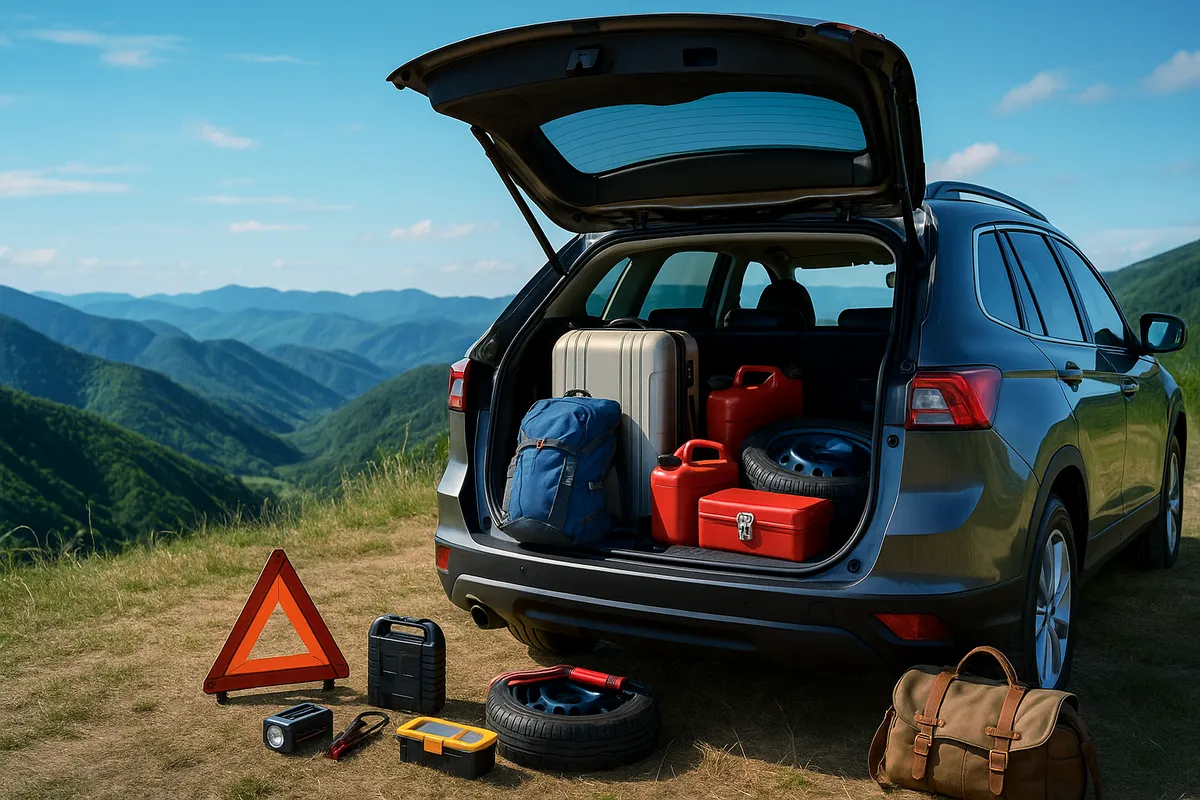Eating experience to avoid stomachache due to strange food in remote areas
- Monday, May 19, 2025, 15:07 (GMT+7)
Eating experience to avoid stomachache due to strange food in remote areas
There is nothing more regrettable than having a long-awaited trip ruined by a stomachache. Something as simple as a bowl of street noodles or a refreshing glass of sidewalk juice can unexpectedly become the culprit that turns your entire trip into a string of days lying in bed. Many travelers, even seasoned ones, still overlook the risks of eating unfamiliar food when visiting new destinations. That is why preparing with knowledge and experience to avoid food-related issues is essential for keeping the journey enjoyable and uninterrupted.
One of the most common reasons for digestive issues during travel is the change in water sources. Not everyone realizes that bottled water in some places may be filled from underground sources or processed with poor sanitation. Drinking ice, brushing teeth with tap water, or eating unwashed vegetables are all potential causes of digestive problems. In many cases, it is the free iced tea or a few pieces of raw herbs that silently cause an upset stomach throughout the trip.
A small but effective tip shared in travel communities is to only buy bottled water from trusted stores and make sure the seal is intact. When dining out, it is best to avoid drinks made with crushed ice, especially smoothies or sugarcane juice. Cold temperatures can mask unusual smells or tastes, making it harder to detect problems. In tropical regions like Southeast Asia, a large percentage of ice fails to meet hygiene standards and can cause diarrhea even if the food itself is clean.
Trying local food is an essential part of every travel experience. However, it is important to choose dishes that match your digestive tolerance and current health condition. For example, someone who is tired should not eat spicy food, and anyone adjusting to a hot climate should avoid fermented or oily dishes. Many travelers try to sample as much food as possible on the first day, which often shocks their digestive system. A valuable tip from experienced travelers is to take it slow. On the first day, choose lighter dishes that are familiar to your stomach, such as rice, soup, or steamed cakes instead of sour fish noodles or spicy raw salad.
Many people experience stomach problems after eating at crowded eateries. It sounds counterintuitive, but a busy place does not guarantee cleanliness. Some vendors, overwhelmed by too many customers, skip important hygiene steps like washing hands or cleaning surfaces. It is important to observe carefully before sitting down. If the floor is dirty, flies are present, tables are greasy, or trash is exposed, those are warning signs. A rarely mentioned but useful tip is to watch how often they change wiping cloths or whether the cooks touch cash while preparing food. Handling money while cooking is a major source of bacteria.
Travelers who frequently suffer from stomach discomfort due to weather or food changes should bring digestive enzymes and activated charcoal. These two items are simple and effective when traveling. Activated charcoal helps absorb mild toxins in the stomach if you eat questionable food. Digestive enzymes support your gut when it becomes imbalanced from unfamiliar meals. It is also wise to carry salt packets and glucose powder to mix with water in case of prolonged diarrhea. Avoid overusing antidiarrheal medications unless advised by a medical professional, as they may trap toxins inside the body.
Some dishes that appear harmless can become dangerous if the origin is unknown. Seafood is a prime example. In coastal areas, fish and shrimp may be stored in makeshift coolers or saltwater. If not fresh, even simple cooking can cause nausea or stomachaches. Among seasoned travelers, a common strategy is to eat seafood in the morning when it is still fresh. Avoid dishes like raw oysters, fish salad, or fermented shrimp paste unless you are confident in the hygiene and sourcing.
Another issue many people overlook is food allergies. In the excitement of tasting regional cuisine, it is easy to forget that some ingredients might trigger adverse reactions. Common allergens include peanuts in sauces, dried shrimp in fillings, or unique spices like wild pepper leaves or forest seeds. If you have a sensitive body, always ask about the ingredients, even for small dishes or drinks. A little carelessness can lead to major trouble.
Few realize that psychological factors also impact digestion. Stress, anxiety during travel, time zone shifts, or sleep deprivation can all make the stomach more sensitive. Therefore, after a long flight or a bumpy bus ride, it is best to rest before eating. Avoid eating when overly hungry or tired, as digestive fluids may not function properly. Eat slowly, chew thoroughly, and let the stomach adjust gradually to new food, especially during the first meals in a new place.
A surprisingly effective tip is to wash your hands before and after meals using soap or antibacterial wipes. This applies not only in restaurants but also when eating snacks on the go. Hands are the quickest path for bacteria to enter the body. Many cases of stomach issues are not caused by dirty food but by dirty hands touching fruit, snacks, or drink straws. Experienced travelers often carry hand sanitizer gel and use it frequently. This simple habit greatly reduces the risk of foodborne illness.
In deep rural areas or developing countries, many travelers carry emergency food supplies. Instant porridge, salted crackers, or dry soup cubes can be life savers when you cannot trust local food. Especially when traveling with young children or elderly companions, a clean, simple meal is always a safe choice. You do not need to be overly cautious, but being prepared for unpredictable situations keeps the trip smooth.
Everyone has a different physical constitution. What works for one person may not work for another. Do not follow the trend of checking in with exotic food or trying everything just for the experience. Listen to your body, recognize early warning signs, and stop when something feels off. A memorable trip is one where health remains steady, the mind stays light, and every memory is preserved in full.

 CHECKIN.VN
CHECKIN.VN








Share on